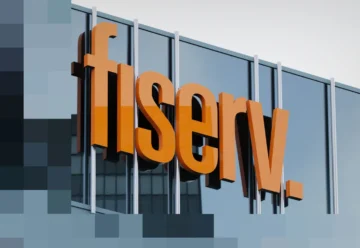U.K. Launches Digitization of Wholesale Markets via DLT Solutions

The U.K. government announced an ambitious strategy to digitize wholesale financial markets, focusing on eliminating paper-based processes, implementing AI, and adopting distributed ledger technology (DLT) solutions.
The U.K. unveiled a comprehensive strategy aimed at removing inefficient paper and manual workflows, supporting the adoption of DLT solutions, AI, and quantum technologies.
The strategy covers three key areas:
- Optimization of existing market processes.
- Transformation of financial infrastructure using advanced technologies.
- Ensuring global leadership in digitalization.
First, the government plans to establish a legal framework to eliminate paper processes, which remain a significant barrier to digitization. The U.K. intends to implement the recommendations of the Digitisation Taskforce by fully phasing out paper share certificates and subsequently digitizing other assets, such as bonds. An analysis is currently underway to explore the removal of paper documentation across all asset classes.
Another critical aspect of the strategy is automation. The U.K. will transition to T+1 settlement from October 2027. Priority areas for eliminating manual processing will be addressed jointly with the Accelerated Settlement Taskforce. Additionally, Smart Data principles will be introduced to ensure that structured, timely, and auditable data become industry standards. The rollout of digital user identifiers is also planned to simplify verification and improve operational efficiency.
At the technological core of the transformation are DLT solutions. Assets will be tokenized and transferred within a unified registry, providing transparency, cost reduction, and instantaneous data exchange.
Key initiatives related to DLT solutions include:
- supporting the issuance of digital assets and enabling settlement of transactions using them;
- creating a flexible legal framework that can quickly adapt to technological innovations;
- launching the first issuance of DIGIT (Digital Gilt Instrument), the U.K. Treasury’s digital debt instrument;
- integrating AI and quantum technologies into market infrastructure;
- utilizing innovative payment methods, including tokenized deposits and stablecoins.
The government will support testing and scaling of DLT solutions through sandboxes such as the Digital Securities Sandbox, Private Intermittent Securities and Capital Exchange System (PISCES), and the FCA’s Supercharged Sandbox. Regulatory frameworks for crypto-assets and digital funds, including prudential requirements, will also be developed.
To accelerate digitization, a Digital Markets Champion will be appointed, an industry representative who will unite public and private sector efforts and coordinate internationally to reduce fragmentation and create a global market for tokenized assets.
The strategy emphasizes:
- Unified cross-industry coordination in digitalization efforts.
- Building international partnerships and harmonizing approaches.
- Using English and Welsh law as the foundation for international tokenized asset transactions.
The U.K.’s digital strategy sets a course for a fundamental overhaul of wholesale financial markets. The focus on tokenization and automation, along with the elimination of paper documentation and media, represents not just modernization but the creation of a fundamentally new level of market infrastructure.
From 2026, updated requirements for crypto services will come into force in the U.K., mandating industry participants to collect detailed information about users and transactions and provide internal reports to regulators.











